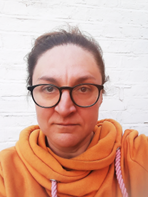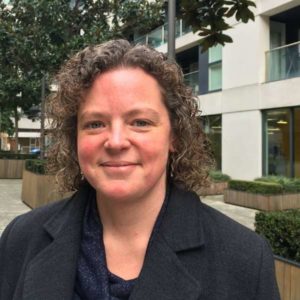
IMPORTANT NOTICE:
Due to the current situation, we have decided to turn this event into a FREE WEBINAR.
Please note that the time of the event has been changed. The webinar will now take place from 12:00 to 14:00 h on 3rd April.
We ask you to please register in advance for the webinar using the following link:
https://zoom.us/meeting/register/tZAsd-mgrz4qrnxWdVRxYdN0S2oNImS68w
After registering, you will receive a confirmation email containing information about joining the meeting.
If you have any question please contact us.
What is the webinar about?
This event seeks to draw together Social Pedagogy concepts and practice from Germany and England. The emphasis will be on spatial approaches and its links to social pedagogy.
There will be a Keynote lecture by Prof. Christian Spatscheck from the University of Bremen, followed by an interactive discussion in which experts from the field and participants will have the opportunity to reflect about their own practice and explore the links and divergences of Social Pedagogy.
Who is this event for?
This event seeks to draw together social pedagogy and spatial approaches from Germany and England in theory and practice. It will be particularly relevant for students, practitioners and academics interested in Social Pedagogy, social work, foster care, young people care, participation and rights, but everyone wanting to know more about Social Pedagogy is also welcome!
More information about the programme and sessions coming soon.
Social Pedagogy in the German tradition – key elements and current challenges
Prof. Dr. Christian Spatscheck
The presentation will start with an overview of the main concepts from the discourse on social pedagogy in the German tradition. Here, especially current and contemporary approaches like the Life-World Approach (Thiersch), the Coping Paradigm (Böhnisch), Subject Oriented Social Pedagogy (Winkler), and others will be reflected. In this background, a special focus will be laid on the Spatial Approach to Social Pedagogy and its implications for research and practice. The presentation will also include interactive elements in order to compare the different conceptual traditions and experiences in Germany and England. A final summary will highlight current issues and challenges that are emerging for social pedagogy as a professional tradition and approach.
Further reading on Spatial approaches:
Speakers
| Prof Christian Spatscheck |
|

Dr. Christian Spatscheck is a Professor for Theories and Methods of Social Work at Hochschule Bremen, City University of Applied Sciences. He is also a visiting Scholar at Lund University and a visiting Professor at Pisa University.
He has been a member of the Editorial Board of the European Journal of Social Work since 2015 and a member of the International Editorial Advisory Board of Nordic Social Work Research since 2011.
His main research interests are Theories and methods of social pedagogy and social work especially spatial and systemic approaches, youth work, social development, and international social work.

Cecile is a social pedagogue working with young people in care, and as such she is always interested in the interaction between learning processes and social change. She expands on this in a blog:
https://www.mypedagogicalblog.com/
Cecile has experimented with forms of communal living -a very personal form of social pedagogy- and she is currently living in a housing co-operative in London. By living there, she is trying to create a different sense of community, to experience and work with the importance of group processes and to move away from individualistic thinking. Cecile carries some of those themes forward in her PhD, where she explores the attitudes and beliefs professionals working in children’s homes have of the young people they work with.
Cecile is also a SPPA trustee, she joined the Board in July 2021 and has since then been actively engaged in all SPPA matters, showing her passion for social pedagogy at all times.

Natalie is a Life skills and Participation Coach within
St Christopher’s Fellowship and has been working with them for over 3 years. Previous to this, she worked in Child Protection Services within a Local Authority for nearly 10 years and she was also a respite Foster Carer.
Her current role is to work alongside young people in the Children’s Residential Homes, as they make the transition from care to leaving care services, and co-produce a programme of support that can be used widely to assist young people to feel confident and prepared for moving to a more independent setting. This includes experiential opportunities to practice and have stays in a more independent setting with time for learning and reflection. Future support around life skills can then be tailored to the individual and successes can be celebrated to build on confidence and self-esteem.
Natalie spends time at the homes building relationships with young people and staff; she supports them to confidently co-produce a package of support that enables them to take steps towards independence in a way that feels right for them and leaves the Young Person feeling supported about their future. She also delivers workshops and facilitates training about Social Pedagogy within St Christopher’s and she has a real passion for the approach.

Shilpa is a Development Manager at
The Lighthouse. She graduated from the University of Manchester and holds an MSc in International Development from Birmingham University. She started her career with the NSPCC in 2011 and set up their first digital youth engagement platform, she then led the digital transformation of a number of children’s therapeutic support communities. She is a volunteer Childline counsellor and guest lecturer at Salford University.
 Nicola is the Director of practice at The Lighthouse. She has almost 20 years’ experience in children’s social care as a frontline practitioner and manager in residential childcare, as well as roles in policy, research, strategy, practice, education and workforce development.
Nicola is the Director of practice at The Lighthouse. She has almost 20 years’ experience in children’s social care as a frontline practitioner and manager in residential childcare, as well as roles in policy, research, strategy, practice, education and workforce development.
Before joining Lighthouse, Nicola was at the youth charity St Christopher’s, initially opening a new children’s home based on social pedagogic principles, then working across the organisation to embed social pedagogy in theory and practice at operational and strategic levels. She was also a member of the steering group which founded the Social Pedagogy Professional Association and is a graduate of the University of Oxford and London Metropolitan University.
 Inspired by his experience of growing up in foster care, Emmanuel founded The Lighthouse, an organisation with a vision of radically improving education outcomes for children in care.
Inspired by his experience of growing up in foster care, Emmanuel founded The Lighthouse, an organisation with a vision of radically improving education outcomes for children in care.
He is a former English teacher. He trained on the Teach First programme and taught in Birmingham for three years. Emmanuel has been developing the idea for Lighthouse since 2014 when he began conducting research into the educational experiences of looked after children. In 2018, he was awarded a Winston Churchill Fellowship to study children’s homes in Germany and Denmark, the results of which informed the Lighthouse model. Emmanuel is a graduate of the London School of Economics and also holds an MA in Education and Leadership from Warwick University.

Lucy is a qualified Architect who, above all else, has a passion for ensuring everyone has access to environments that have been designed to improve the user's mental and physical wellbeing. She has a strong belief that Architecture and Design is an area in care that is not being used to its full potential, but it should be playing a more vital role alongside the services currently being provided to enhance them.
Lucy started
ACCEteam.com in 2018 following her Master’s thesis research at The University of Sheffield. ACCE is a platform to grow and share this research and help clients implement the theory into practice in existing and new care environments.

Thure qualified as a Pedagogue in Denmark specialising in music within social education. He has lived and worked in the UK since 2007 and is particularly keen on promoting the
use of creativity and arts in working practices. He is also the founder of a development agency called Treehouse Associates.
Thure has previously practised within foster panels and as a manager in a UK family support charity. After turning independent in 2012, his focus has been systemic social pedagogy initiatives in various organisations and skills development of social pedagogy facilitators, social pedagogue recruitment and professional supervision. Thure plays an active role in promoting SPPA and the social pedagogy qualification framework with colleagues from SPC and UCL.
